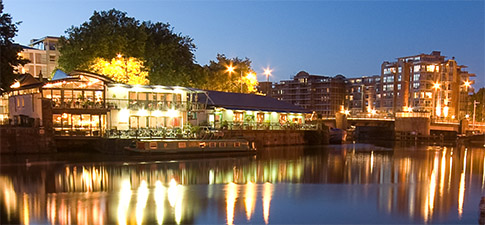Selected Projects
Exploring the implications of Passive House Design
Client: Retailer
Using one of experts from Austria, we worked with a retailer to investigate how using the Passive House approach would affect their designs. The project involved reviewing main design features and then meeting to discuss aspects of design that would change if Passive House were used. It also noted areas where BREEAM and Passive House might conflict. The work will help to inform future design approaches.
Review of UK EPBD implementation
Client: Government of Australia
The Government of Australia is developing policies to improve the environmental efficiency of buildings and wanted to learn from experiences in the UK. We advised on the progress of the implementation of Energy Performance Certificates (EPCs) and Display Energy Certificates (DECs) and gathered information and examples from organisations that had commissioned certificates. The work helped the client to determine the benefits and issues surrounding different policy actions.
Passive Houses Give a High Quality of Life
Client: Lower Austrian government
Passive Houses are designed to be comfortable all year round whilst using less than 15kWh of energy per year and square metre. For comparison, the energy use of a standard British house built to the most recent building standards is typically in the order of 60kWh per year and square metre. There were concerns that the high insulation needed to create passive houses as well as the artificial ventilation and heat recovery system would make them uncomfortable. However, post occupancy studies by BuildDesk on 32 houses have found that people living in the houses find them very comfortable. Perception played an important role in acceptance of the Passive Houses. Some features were thought to be off-putting by prospective occupants but did not register as important once the houses were in use.
Driving housing improvements through EPCs
Clients include: De Alliantie, Amsterdam and Wonen Breburg, Tilburg
Housing that has been cheaply built is usually the most expensive for the tenants because of high heating costs. BuildDesk has developed an approach that helps housing associations to upgrade and manage their housing stock cost effectively. The approach starts with surveys that determine the condition of the stock. The information from surveys is captured in a database and an Energy Performance Certificate is produced. The measures needed to upgrade each unit to a better EPC rating are determined, along with the costs of the improvements. Once the housing owners have upgraded to the desired standard, the database is updated to ensure the new details are captured. The system allows cost effective improvements and improved long-term management of the properties. So far, 800.000 dwellings have been assessed using BuildDesk tools.
Refurbishing a school to Passive House standard
Client: Linz City Government
A Passive House uses less than 15kWh of energy per square metre per year for heating and cooling. This standard is now being applied to a school in Linz, Austria. BuildDesk has helped to define the building and has calculated the physical parameters needed to make it meet the low energy use criteria. BuildDesk will also monitor and testing the building as work progresses. The project is likely to help the Linz City Government to use the Passive House standard for all school refurbishments in Future.
Higher costs for those on lower incomes
BuildDesk undertook a study of the costs of heating. This showed that the cheapest dwellings were usually the ones with the worst energy performance. Generally cheaper dwellings were occupied by low income households. The total cost of living in cheap dwellings with low energy performance was shown to be relatively higher than the cost of living in more expensive but more energy efficient dwellings. Rising energy costs are therefore likely to impact heavily on low income households, even if the rental costs are low. This shows that improving the energy efficiency of dwellings has both environmental and social benefits.
BuildDesk is convinced that the improvement of the energy performance of public residential buildings is one of the structural solutions in the battle against poverty and rising energy prices.
The European Anti Poverty Network (EAPN Netherlands) has shown high interest in the BuildDesk approach and vision on fuel poverty. Fuel poverty is a relatively new issue and not yet perceived as a policy issue.
